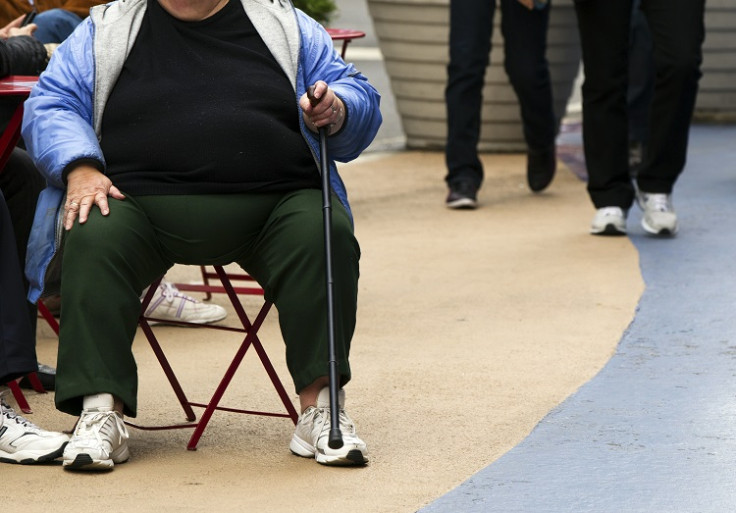Why Solving the UK Obesity Crisis is Hideously Complex

We haven't even reached the end of January but already we have been hit with the big fat fact that the number of overweight and obese adults in the developing world has almost quadrupled to around one billion since 1980.
Furthermore, the National Obesity Forum has also warned that the prediction of 50% of the UK population becoming obese by 2050 is "underestimating" the problem.
In the UK, we are obsessed with weight and spend billions of pounds on diet books, products and fads, and are regularly bombarded with celebrity-related imagery that celebrates the ultra-thin.
Yet, our obesity levels are continuing to soar.
In turn, our economy is suffering under the weight of our national health problem.
For example, type 2 diabetes, which is closely, linked to the overweight, costs the National Health Service (NHS) over £1.5m an hour or 10% of the NHS budget for England and Wales.
This equates to over £25,000 being spent on diabetes every minute and estimated £14bn each year on treating diabetes and its complications, with the cost of treating complications representing the much higher cost.
A London School of Economics 2012 report also estimates that the cost of prescribing medication for complications of diabetes is around 3 to 4 times the cost of prescribing diabetes medication.
If we're not careful, obesity related issues will outweigh the costs of other preventable diseases, such as heart disease caused by smoking.
In the US, this is already become a reality, as the country now spends around $190bn on tackling obesity, which has outstripped smoking as the number one cause for expensive preventable diseases.
Clearly something needs to be done in Britain but where does personal responsibility start and end?
Move More, Eat Less
Obesity is calculated by a measurement known as the body mass index (BMI) which takes into account your height and weight. Granted, it doesn't factor in muscle composition, so some athletes would be considered obese despite being proverbially ripped.
A BMI between 18.5 and 24.9 is deemed healthy for an adult and can we used as a handy guideline for your waistline.

The standard science behind weight loss is making sure you consume less that you expend and to maintain a healthy weight, you need to hover around the daily calorific intake of 2,000 for a woman and 2,500 for a man.
Unless you have a proven medical problem, you cannot go wrong with this formula but if it was easy to stick to, then everyone would be at a healthy weight.
While personal responsibility and willpower is of course a staple requirement to maintaining a healthy weight, there are a number of factors in Britain that make the situation far more complex, and difficult, when it comes to tackling the rising obesity epidemic.
Cheap Food: High Salt, Sugar, Fat
Generally, the cheaper the food the more processed the item. Cheap food is also notoriously higher in saturated fat, salt, and sugar content.
While we may be bombarded with publicity campaigns by Britain's biggest supermarkets for feeding your family for less, spending habit statistics prove that families are opting for the more processed, and less fresh items, in the face of the 'cost of living crisis'.
According to the Institute for Fiscal Studies, which surveyed 15,000 households, many young families had cut back on fresh fruit and vegetables and switched to less healthy processed food.
Worryingly, pensioners, single parent households and families had the biggest drop in the nutritional quality of their diets.

Considering that latest government statistics show that 18.9% of children in Year 6 (aged 10-11) were obese and a further 14.4% were overweight, this does not bode well for the health of Britain's youth.
Again, while adults are responsible for feeding themselves and their families, if budgets are severely restrained, all the good intentions in feeding their families with fresh produce every day is just a fantasy.
In turn, the reason why processed meals are thrifty purchases is because they usually contain higher amounts of salt and sugar as it is a cut-price way in making inexpensive items taste better and last longer.
Sedentary Jobs and Motivation
The average person sitting at a desk for 8 to 9 hours a day is classed as sedentary and as the latest data shows, many of us are working for longer and for less pay.
Not only is it demotivating but it is of course more difficult to fit in a work out or heart pumping exercise around long work days, while also trying to have a family and a social life.
For example, according to the Office for National Statistics, the number of people employed on zero-hours contracts rose from 134,000 in 2006 (0.5% of the workforce) to 208,000 (0.7%) in 2012. These are people that may not have an income from one day to the next.
Furthermore, those who are working in the minimum wage industry, such as hospitality and retail, are most likely to be affected.
According to the National Obesity Observatory (NOO), obesity in women rises steadily with falling household income, and there is a significant difference in prevalence between the highest and lowest income groups.
However, the differences are smaller for men and the trend is less clear-cut.
In addition, the NOO said that the prevalence of obesity for women in unskilled occupations is twice that of those in professional occupations.
NOO also highlighted that obesity is also associated with educational attainment.
"Obesity prevalence is higher in both men and women who have fewer qualifications," it confirmed in a study.
Corporate Responsibility
While we are responsible for what we put in our mouths, companies should also be responsible for what they sell.
This sounds like a broad stroke argument but campaign groups and doctors have highlighted the need for companies to reduce the amount of sugar added to food and soft drinks.
"Added sugar has no nutritional value whatsoever and causes no feeling of satiety," said Dr Aseem Malhotra, a cardiologist and science director of Action on Sugar.
"Aside from being a major cause of obesity, there is increasing evidence that added sugar increases the risk of developing type 2 diabetes, metabolic syndrome and fatty liver."
Meanwhile, as some of the world's largest food companies have made some progress, in cutting some of the calories from its main products, the 6.4 trillion fewer calories only accounts for 78 fewer calories per person per day, if spread equally across the US population.
This will make a minute dent in the average person's calorific intake.
Balance Between Acceptance and Fat Shaming
Our society is obsessed with extremes. We only need to switch on the TV, read a magazine and look at any media outlet online to see our appetite for coverage of the supersized versus super skinny.
We are consistently met with conflicting messages about what is deemed as acceptable as a body type on the outside without fully engaging the debate around health.
While praising the thin, regardless of whether that person is healthy on the inside, we are also met with the extreme side of women being 'proud of their curves,' even if that person is morbidly obese.

We are then shown programmes documenting the enormous versus the eating disorder realm.
While battling against championing thin for thins sake, it is also irresponsible for people to be cheerleaders for the obese or morbidly obese, which is met with dozens of long term health complications.
At the same time, we only create a vicious circle for those who are trying to get healthier and take control of their lives by shaming them and telling them that they are failing before they have even properly tried.
What we need is greater understanding and focus over all the direct and indirect issues that affect our society instead of slamming the overweight for taking up resources or not feeding their families properly.
© Copyright IBTimes 2025. All rights reserved.






















